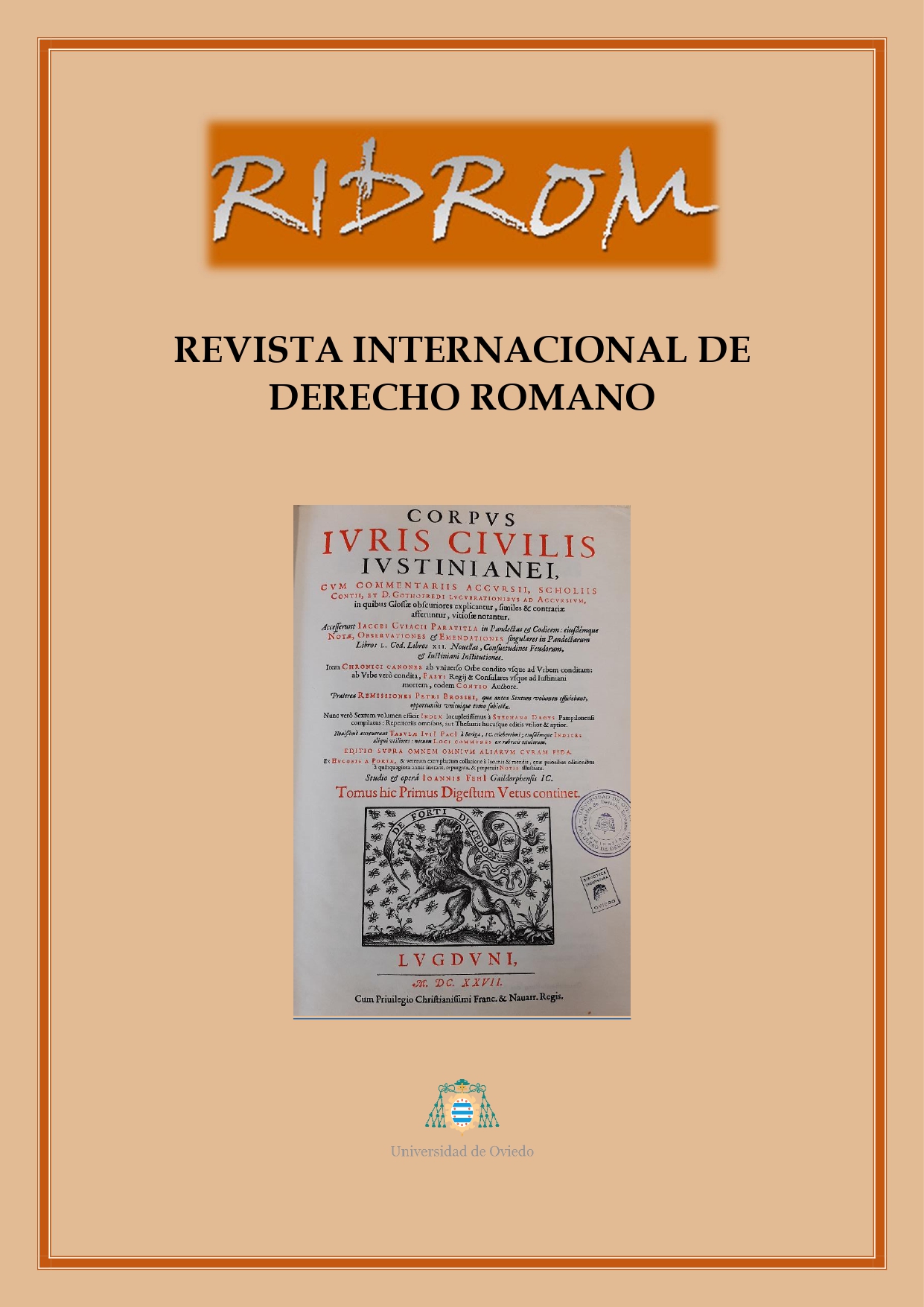Abstract
The Roman conception of eternal memory pursued the immortality of the soul through the lasting memory of the deceased. For this reason, the condemnation accessory to capital punishment or banishment, the damnatio memoriae for crimen maiestatis, was a cruel and feared punishment that entailed, in addition to public disgrace, the condemnation to oblivion of the condemned, with the annihilation of any monument erected in his honor, the erasure of his name and effigy, the abolitio nominis and the rescissio auctorum. It was also decreed, with the same accessory character to the main penalty, the publicatio bonorum with the consequent consequences for the heirs of the condemned. Both penalties were an exception to the principle that the crime was extinguished with the death of the convict.Downloads
Download data is not yet available.

